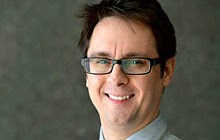(Note: This post has been updated with a comment from Bank of America.)
Bank of America is cutting off support for its Windows phone app, according to a message on the Charlotte-based lender's webpage for the app.
Below is a screenshot I took of the page, which says the support will end in March:
The bank sent me the following comment when I asked what was behind the decision:
"We’re committed to giving Bank of America customers a variety of ways they can manage their finances conveniently through mobile and online banking. As we evaluate our platforms, we’ll continue to support those which our customers utilize the most. Windows phone customers will still be able to access their account by using bankofamerica.com on their device."
According to a story posted Wednesday by USA Today, the news comes just after JPMorgan Chase & Co. last week announced that it will no longer offer a banking app for Windows mobile devices. Chase Bank customers took to social media to protest the decision, according to a separate USA Today story.
Here are some excerpts from USA Today's story on Wednesday:
The timing is a bit curious since it comes just a week after Microsoft unveiled its upcoming Windows 10 operating system, which will allow the same apps run on phones, computers and tablets.Wells Fargo appears to still be supporting its mobile app for smartphones that run Microsoft’s Windows operating system. Below is a screenshot I took Wednesday night of Wells Fargo's webpage for the app:
The move leaves investors that relied on the Bank of America app on their Windows Phone to check their balances and deposit checks to use a browser on their phones. Consumers continue to show their preference of apps versus mobile browsing on their mobile devices.













